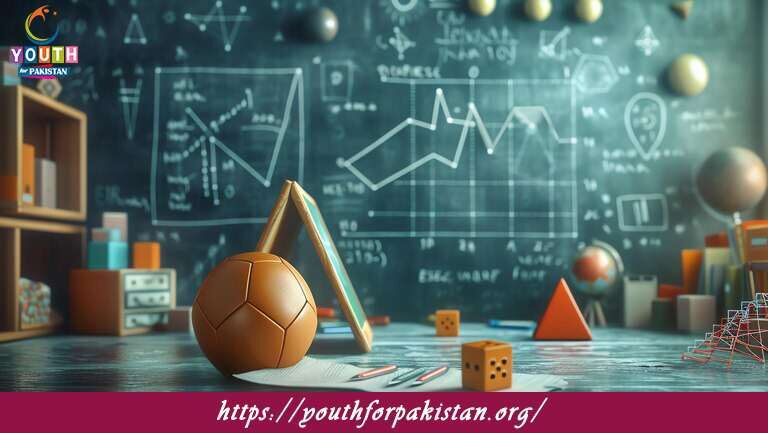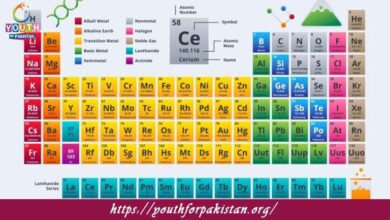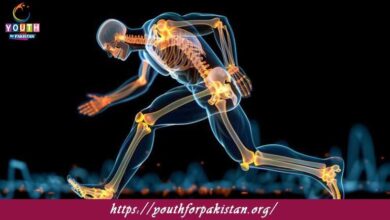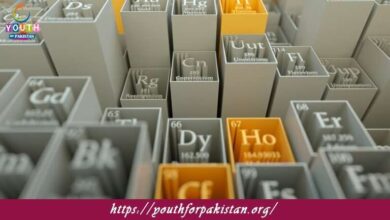12th Class Physics Chapter 17 MCQs with Answers

Understand the Physics of Solids with 12th Class Physics Chapter 17 MCQs. Topics like crystalline structure, elasticity, and thermal properties are covered. Keywords like solids physics quiz, crystalline structure MCQs, and elasticity test ensure better visibility.
The study of the behavior of solids under the action of forces is called:
a) Solid mechanics
b) Solid state physics
c) Solid dynamics
d) Solid thermodynamics
The unit cell of a crystal lattice represents:
a) A single crystal
b) A repeating pattern in a crystal
c) The entire crystal lattice
d) A disordered arrangement of atoms
Which of the following is an example of an amorphous solid?
a) Diamond
b) Graphite
c) Glass
d) Sodium chloride (NaCl)
The ability of a material to resist deformation under stress is called:
a) Elasticity
b) Plasticity
c) Ductility
d) Hardness
Which of the following statements about crystalline solids is true?
a) They have a disordered atomic arrangement
b) They have a definite and repeating pattern of atoms
c) They lack a well-defined melting point
d) They are also known as amorphous solids
The energy required to break one mole of a solid material into individual atoms in the gas phase is called:
a) Lattice energy
b) Binding energy
c) Cohesive energy
d) Activation energy
The phenomenon of a solid material undergoing a gradual increase in length when subjected to a constant applied force is known as:
a) Elasticity
b) Plasticity
c) Creep
d) Hardness
The property of a material to retain its original shape after the removal of the applied force is called:
a) Elasticity
b) Plasticity
c) Ductility
d) Hardness
Which of the following is not a characteristic property of crystalline solids?
a) Anisotropy
b) Isotropy
c) Cleavage
d) Crystallography
Which type of bonding is responsible for the mechanical strength of metals?
a) Ionic bonding
b) Covalent bonding
c) Metallic bonding
d) Van der Waals bonding
The behavior of electrons in the valence band of a solid material determines its:
a) Color
b) Hardness
c) Electrical conductivity
d) Density
Which of the following properties is not a mechanical property of solids?
a) Hardness
b) Brittleness
c) Electrical conductivity
d) Ductility
The ability of a material to absorb energy without breaking is called:
a) Ductility
b) Toughness
c) Hardness
d) Fragility
The temperature at which a solid material changes from a crystalline to an amorphous state is known as:
a) Melting point
b) Boiling point
c) Glass transition temperature
d) Sublimation point
The measure of a material’s resistance to indentation or scratching is called:
a) Ductility
b) Toughness
c) Hardness
d) Fragility
Which of the following materials is a good conductor of electricity due to its high electron mobility?
a) Rubber
b) Glass
c) Silicon
d) Diamond
The temperature at which a solid material changes from a solid to a liquid state is known as:
a) Melting point
b) Boiling point
c) Glass transition temperature
d) Sublimation point
Which of the following materials is a good insulator of electricity?
a) Copper
b) Aluminum
c) Glass
d) Graphite
The crystal lattice structure of diamond is based on which element?
a) Carbon
b) Silicon
c) Oxygen
d) Sodium
Which type of solid material has a random arrangement of atoms and lacks a well-defined crystal lattice structure?
a) Crystalline solid
b) Amorphous solid
c) Polycrystalline solid
d) Single-crystal solid
Which of the following is not a characteristic of metallic bonding?
a) Delocalized electrons
b) High electrical conductivity
c) Brittle behavior
d) Ductility
The property of a material to be drawn into wires is known as:
a) Hardness
b) Ductility
c) Brittleness
d) Toughness
What is the name of the process by which a solid material changes directly into a gaseous state without passing through the liquid state?
a) Sublimation
b) Melting
c) Evaporation
d) Condensation
Which type of solid material has a regular arrangement of atoms in a three-dimensional pattern?
a) Crystalline solid
b) Amorphous solid
c) Polycrystalline solid
d) Single-crystal solid
What is the name of the property that allows a material to undergo large deformations before fracturing?
a) Brittleness
b) Ductility
c) Toughness
d) Elasticity
Which of the following is a type of mechanical defect in a crystal lattice?
a) Grain boundary
b) Glass transition temperature
c) Melting point
d) Sublimation point
The property of a material to be hammered or beaten into thin sheets is known as:
a) Hardness
b) Ductility
c) Malleability
d) Toughness
What is the name of the process by which a solid material changes directly from a gaseous state to a solid state without passing through the liquid state?
a) Sublimation
b) Melting
c) Evaporation
d) Condensation
Which of the following properties is a mechanical property of solids?
a) Electrical conductivity
b) Brittleness
c) Transparency
d) Refractive index
The arrangement of atoms in a crystal lattice can be described by:
a) Bravais lattice
b) Van der Waals forces
c) Lennard-Jones potential
d) Bohr’s model
The phenomenon of a solid material returning to its original shape after the removal of the applied stress is called:
a) Elasticity
b) Plasticity
c) Creep
d) Hardness
Which of the following materials is a good conductor of electricity due to its free electrons?
a) Plastic
b) Glass
c) Copper
d) Wood
The property of a material to withstand mechanical stress without permanent deformation is called:
a) Elasticity
b) Plasticity
c) Ductility
d) Hardness
The bending of light as it passes through different regions of a material with different refractive indices is known as:
a) Diffraction
b) Reflection
c) Dispersion
d) Refraction
What is the name of the process by which a solid material changes from a liquid state to a gaseous state?
a) Sublimation
b) Melting
c) Evaporation
d) Condensation
The property of a material to be stretched or pulled without breaking is known as:
a) Hardness
b) Ductility
c) Malleability
d) Toughness
Which of the following materials is an example of a good electrical insulator?
a) Aluminum
b) Silicon
c) Copper
d) Glass
The temperature at which a solid material changes from a solid to a gaseous state is known as:
a) Melting point
b) Boiling point
c) Glass transition temperature
d) Sublimation point
Which type of solid material is composed of small crystalline regions or grains with different orientations?
a) Crystalline solid
b) Amorphous solid
c) Polycrystalline solid
d) Single-crystal solid
The property of a material to be hammered or beaten into thin sheets is known as:
a) Hardness
b) Ductility
c) Malleability
d) Toughness
Which of the following materials is a good conductor of electricity due to its high electron mobility?
a) Rubber
b) Glass
c) Silicon
d) Diamond
The temperature at which a solid material changes from a solid to a liquid state is known as:
a) Melting point
b) Boiling point
c) Glass transition temperature
d) Sublimation point
Which of the following materials is a good insulator of electricity?
a) Copper
b) Aluminum
c) Glass
d) Graphite
The crystal lattice structure of diamond is based on which element?
a) Carbon
b) Silicon
c) Oxygen
d) Sodium
Which type of solid material has a random arrangement of atoms and lacks a well-defined crystal lattice structure?
a) Crystalline solid
b) Amorphous solid
c) Polycrystalline solid
d) Single-crystal solid
Which of the following is not a characteristic of metallic bonding?
a) Delocalized electrons
b) High electrical conductivity
c) Brittle behavior
d) Ductility
The property of a material to be drawn into wires is known as:
a) Hardness
b) Ductility
c) Brittleness
d) Toughness
What is the name of the process by which a solid material changes directly into a gaseous state without passing through the liquid state?
a) Sublimation
b) Melting
c) Evaporation
d) Condensation
Which type of solid material has a regular arrangement of atoms in a three-dimensional pattern?
a) Crystalline solid
b) Amorphous solid
c) Polycrystalline solid
d) Single-crystal solid
What is the name of the property that allows a material to undergo large deformations before fracturing?
a) Brittleness
b) Ductility
c) Toughness
d) Elasticity
Which of the following materials is a good conductor of electricity due to its free electrons?
a) Plastic
b) Glass
c) Copper
d) Wood
The arrangement of atoms in a crystal lattice can be described by:
a) Bravais lattice
b) Van der Waals forces
c) Lennard-Jones potential
d) Bohr’s model
The phenomenon of a solid material returning to its original shape after the removal of the applied stress is called:
a) Elasticity
b) Plasticity
c) Creep
d) Hardness
Which of the following materials is an example of a good electrical insulator?
a) Aluminum
b) Silicon
c) Copper
d) Glass
The property of a material to withstand mechanical stress without permanent deformation is called:
a) Elasticity
b) Plasticity
c) Ductility
d) Hardness
The bending of light as it passes through different regions of a material with different refractive indices is known as:
a) Diffraction
b) Reflection
c) Dispersion
d) Refraction
What is the name of the process by which a solid material changes from a liquid state to a gaseous state?
a) Sublimation
b) Melting
c) Evaporation
d) Condensation
The property of a material to be stretched or pulled without breaking is known as:
a) Hardness
b) Ductility
c) Malleability
d) Toughness
Which of the following materials is an example of a good electrical conductor?
a) Rubber
b) Glass
c) Silicon
d) Copper
The temperature at which a solid material changes from a solid to a gaseous state is known as:
a) Melting point
b) Boiling point
c) Glass transition temperature
d) Sublimation point
If you are interested to enhance your knowledge regarding Physics, Chemistry, Biology, and Computer please click on the link of each category, you will be redirected to dedicated website for each category.





